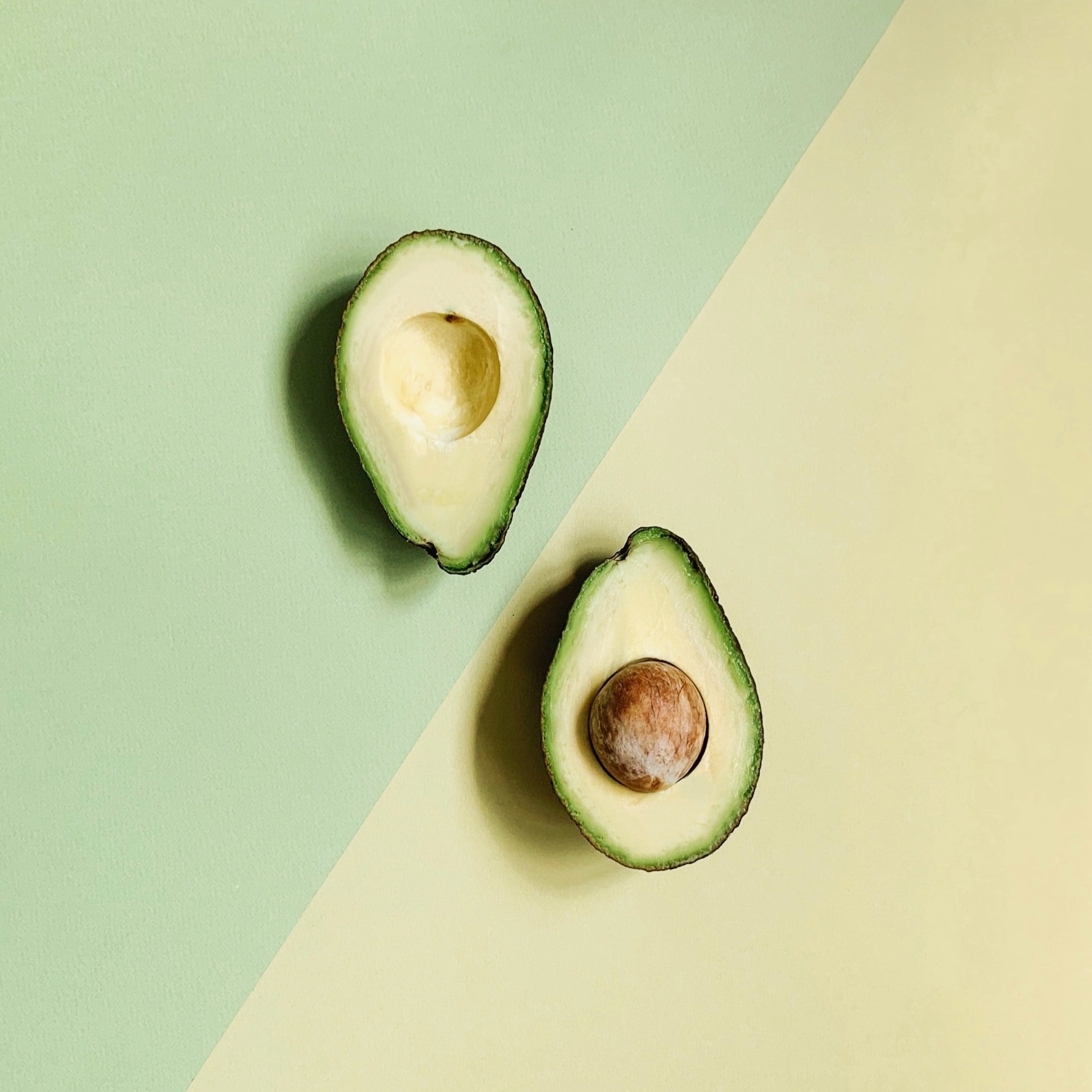Dietary fat and heart health
For years, “low fat” diets were described as the optimal heart-healthy diet. Unfortunately, this over-simplistic piece of dietary guidance has become embedded in our dietary culture, and many still preach that any and all fat is unhealthy. However, we now have robust evidence that polyunsaturated and monounsaturated fats (mostly found in plant foods, like fresh avocado, nuts, and oils, as well as fish) support heart health compared to their counterparts, trans fats and saturated fats. Let’s explore what fats are, why some are better than others, and how we can incorporate “good” fats into our diet.
What are fats?
All fats are composed of a chain of carbon atoms bonded to hydrogen atoms. Fats differ in terms of length and shape of the carbon chain and the number of hydrogen atoms connected to the carbon atoms. These slight differences in structure impact how they are processed by our bodies.
Saturated fatty acids are fully hydrogenated and do not contain a double bond. As a result, they can be packed tightly and are completely solid at room temperature. Saturated fats mostly come from animal products (think butter, dairy, and meats), but are also found in high amounts in palm oil and coconut oil.
Monounsaturated and polyunsaturated fats (MUFAs and PUFAs for short), on the other hand, are not fully hydrogenated and *do* contain one or more double bonds. As such, they do not pack as tightly and are liquid at room temperature. Sources of monounsaturated fats and polyunsaturated fats include fresh avocados, olive oil, nuts, seeds, fish, and vegetable oil.
Fats are a major source of energy for our body, and are important for absorption of some vitamins, cell composition, and the function of many of our vital organs. Good fats, like those in avocados, help the body absorb fat-soluble nutrients without raising LDL (bad) cholesterol levels when eaten as part of a healthy diet.
Does a low fat diet prevent heart disease?
Overall, the current scientific evidence suggests that including unsaturated fats in the diet, in place of saturated fats, supports heart health.
The Women’s Health Initiative*, one of the largest randomized controlled trials to date, set out to test the hypothesis that lower fat diets high in vegetables, fruits, and grains would decrease heart disease risk. Almost 50,000 women were randomized to either a diet that reduced total fat intake to 20% of total calories and increased intake of vegetables and fruits to at least 5 servings daily and of grains to at least 6 servings daily or a control diet where people were free-living. Women in the lower fat arm reduced their dietary fat intake by 8.2% of calories consumed and increase their fruit, vegetable, and grain intake, but after 8 years of follow up, the researchers did not see a reduced risk of cardiovascular disease.
In contrast, we have several important dietary studies demonstrating how including specific types of fats can support heart health.
One particularly important study dubbed PREDIMED* compared the American Heart Association “low-fat” diet to a Mediterranean diet supplemented with extra virgin olive oil or nuts among more than 7,000 Spanish adults at high risk for heart disease. The group of individuals who consumed the plant-predominant Mediterranean diet high in MUFAs and PUFAs resulted in a 30% reduction risk of myocardial infarction, stroke or death compared to the group who consumed the low fat diet.
Additionally, the OmniHeart study* provides us some additional insight. In this study, among 164 adults with prehypertension or hypertension, a high-carbohydrate, high-protein and high-MUFA diets all improved blood pressure and LDL compared to baseline, but the diets that replaced saturated fat with protein or especially vegetable-based unsaturated fats most improved cardiovascular disease risk factors.
Does the type of fat matter?
Yes!
Turns out that the type of fat matters greatly. As described above, consuming sources of MUFAs and PUFAs, especially in place of saturated fat, can support heart health. A diet high in saturated fat, on the other hand, has been linked to heart disease.
As such, the American Heart Association/American College of Cardiology recommends swapping sources of saturated fat with sources of polyunsaturated and monounsaturated fats, like fresh avocado, to reduce heart disease risk.
How to incorporate more unsaturated fats
We don’t eat individual nutrients, we eat foods that contain a mix of nutrients - so with my patients, typically I like to focus on foods with health-promoting nutrients including monounsaturated or polyunsaturated fats.
Fresh avocados have so many uses and have 6 grams of unsaturated fat per 1/3 of a medium avocado! Two large prospective cohorts* of US men and women have found higher avocado intake to be associated with lower risk of cardiovascular disease and coronary heart disease suggesting that the replacement of certain fat-containing foods with avocado could lead to lower risk of cardiovascular disease. I like to add them to my salads, top grain bowls or tacos, smash onto toast, or make a quick guacamole. Bonus points if you make a creamy dressing or sauce with avocado! Check out Love One Today for relevant resources for health professionals like this meal plan that can serve as inspiration for people looking to enjoy meals with unsaturated fats, as well as those looking to guide their patients or clients towards a heart-healthy eating pattern.
Incorporating nuts and seeds daily. I like to snack on almonds, blend soaked cashews into cream-based sauces, and top my oatmeal with nut butter. Seeds like chia seeds, ground flax seeds, and hemp seeds can be added to smoothies and oatmeal.
Personally, I cook with extra virgin olive oil. Depending on the recipe this is an easy swap for ingredients that are higher in saturated fat.
The data supports incorporating nutrient-dense sources of unsaturated fats for heart health, but as always, it’s important to work closely with your doctor or a registered dietitian to be sure you’re on the right dietary plan personalized for you.
Where you can find more resources
Fresh Avocados – Love One Today, is a free science-based resource offering a wealth of information about avocados including, educational materials, and nutrition articles. You can also access the latest research like the mentioned above.
Though well-loved, avocados are still little understood which is why the Avocado Nutrition Center (ANC), the research arm of Love One Today, is working to deepen the world’s scientific understanding of it to help debunk any misinformation. Without the ANC, the vast majority of research into the avocado as a whole food wouldn’t exist.
For avocado nutrition research click here.
For resources including meal plans, handouts and more, click here.
This post was created in partnership with Fresh Avocados – Love One Today, a science-based resource that makes it easy for consumers and health professionals to learn more about the nutritional benefits of fresh avocados and ways to include them in everyday menus. All opinions, however, are my own.
*As with all research, there are study limitations, including drawbacks of all validated food frequency questionnaires, and this prevents the generalization of the findings. Despite the limitations of these studies, avocados may have a role in promoting overall good nutrition and diet quality.
Interested in working with Dr Harkin to optimize your diet for cardiovascular health?


